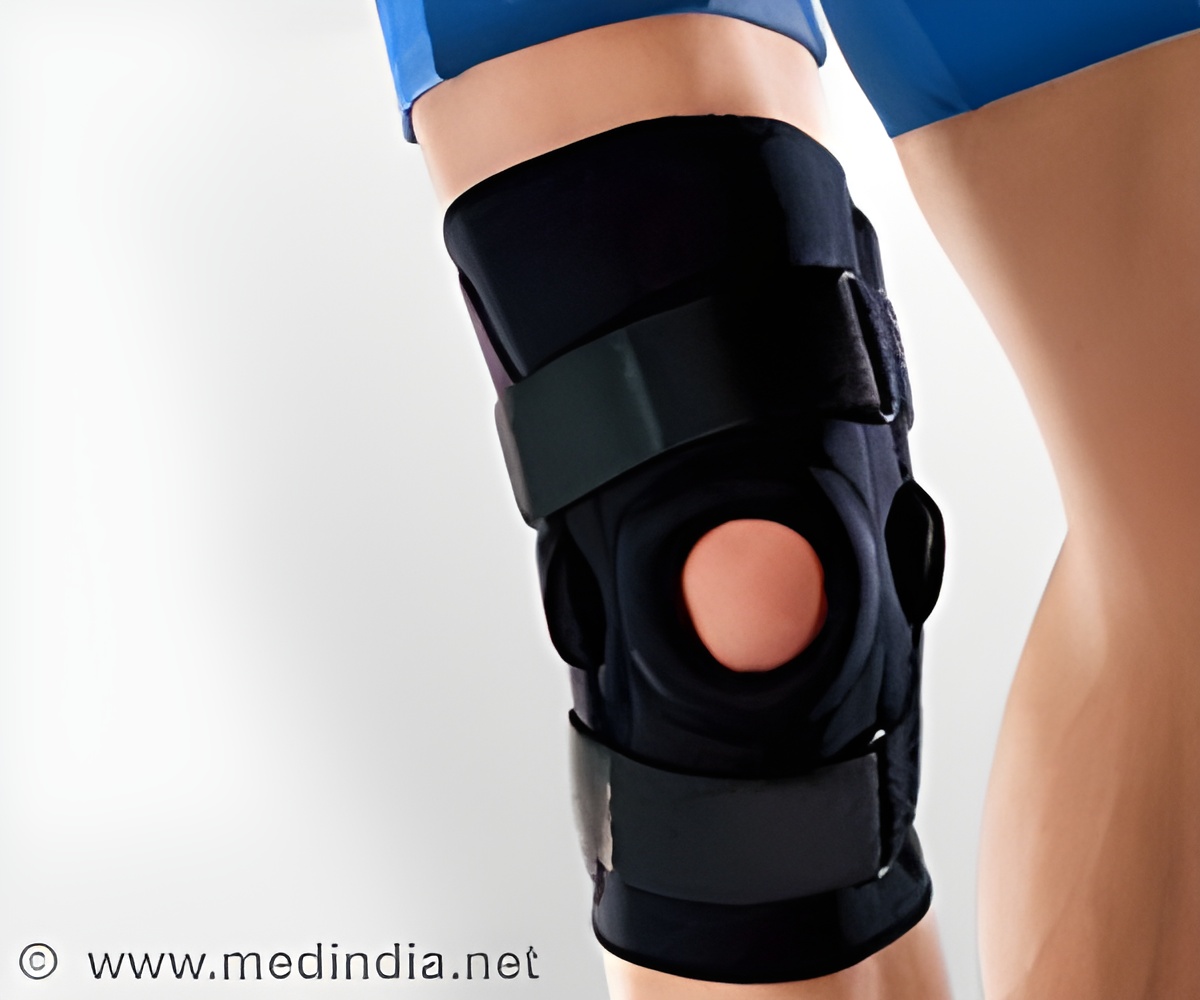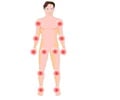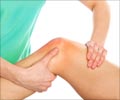New research findings say that people age 30 or over with autoimmune, inflammatory diseases like rheumatoid arthritis may benefit from vaccinations for the viral infection herpes zoster.

Systemic lupus erythematosus, also known as SLE or lupus, is a chronic disease with a wide variety of symptoms that include pain, swelling and inflammation. Lupus may affect the skin, joints, kidneys, lungs, nervous system and other organs of the body. Most patients feel fatigue and have rashes, arthritis (painful and swollen joints) and fever. Lupus affects 10 times as many women as men and often affects people in their 20s and 30s.
Herpes zoster (HZ) occurs in one out of three U.S. adults during their lifetimes. A primary risk factor is age. People with autoimmune, inflammatory diseases like RA are at as much as twofold increased risk of developing HZ due to their suppressed immune systems or taking medications like prednisone. HZ vaccination is recommended for adults 60 or over, but no evidence supports whether the risk of HZ infection in younger people may warrant vaccination.
Researchers at the University of Alabama, Birmingham, and Oregon Health and Science University in Portland evaluated data collected from the 2007-2010 Multi-Payer Claims Database to determine incidence of HZ in a younger population of patients with autoimmune, inflammatory diseases that may put them at increased risk for infection.
The researchers assembled seven cohorts of patients with autoimmune, inflammatory diseases cohorts, requiring the patients to have ≥ 13 months of continuous medical and pharmacy coverage. The cohorts included those patients with at least one prescription and two diagnoses of rheumatoid arthritis (RA), psoriasis arthritis (PsA), psoriasis (PsO), ankylosing spondylitis (AS), inflammatory bowel disease (IBD), lupus (SLE) and gout, and compared their infection rates with diabetic patients and healthy patients without diabetes or any autoimmune disease.
The study population included 50,646 RA patients, 2,629 PsA patients, 4,299 psoriasis patients, 1,019 AS patients, 7,916 IBD patients, 8,395 SLE patients, 5,893 gout patients, 214,631 diabetes patients and 330,727 healthy patients.
The study''s authors concluded that RA, SLE and IBD are associated with a higher incidence of HZ infection compared to healthy individuals. The findings led them to further conclude that people age 30 or over with RA, SLE and IBD may benefit from HZ vaccination.
The American College of Rheumatology is an international professional medical society that represents more than 9,500 rheumatologists and rheumatology health professionals around the world. Its mission is to Advance Rheumatology! The ACR/ARHP Annual Meeting is the premier meeting in rheumatology. For more information about the meeting, visit www.acrannualmeeting.org/ or join the conversation on Twitter by using the official #ACR14 hashtag.
 
Paper Number: 820
Herpes Zoster Infection Risk in Auto-Immune and Inflammatory Diseases: Implications for Vaccination
Huifeng Yun1, Shuo Yang2, Lang Chen2, Fenglong Xie2, K. L. Winthrop3, John Baddley2, Kenneth G. Saag4, Jasvinder Singh2 and Jeffrey R. Curtis2, 1University of Alabama at Birmingham School of Public Health, Birmingham, AL, 2University of Alabama at Birmingham, Birmingham, AL, 3Oregon Health and Science University, Portland, OR, 4The University of Alabama at Birmingham, Birmingham, AL
Background/Purpose: Herpes zoster (HZ) vaccine is recommended for healthy people age >= 60 years in US. It is unclear whether the absolute risk for younger patients (pts) with autoimmune or inflammatory (AI) diseases is high enough to warrant vaccination. We evaluated the overall and age-stratified absolute incidence of HZ infection associated with different AI diseases compared to healthy older adults who are recommended for vaccination by the CDC.
Methods: Using 2007-2010 Multi-Payer Claims Database, we assembled 7 AI disease cohorts, requiring pts to have ≥ 13 months continuous medical and pharmacy coverage. Pts with at least one prescription and two diagnoses of rheumatoid arthritis (RA), psoriasis arthritis (PsA), psoriasis (PsO), ankylosing spondylitis (AS), inflammatory bowel disease (IBD), lupus (SLE), gout were included and compared with diabetic pts and healthy pts without diabetes or any autoimmune disease. We identified HZ using diagnosis codes and antiviral agent +- 30 days. Age-adjusted incidence rates (AAIR) and age-specific rates for HZ per 1,000 person-years were calculated for each disease and compared to healthy older people age 60-69 using Poisson regression. Based upon external data, we used a non-inferiority margin of an HZ IR ratio (IRR) of 0.62 to establish non-inferiority of HZ rates of younger pts with AIs versus healthy older people. Rates were classified as significantly higher (bold) if the lower limit of the IRR 95% CI >1, comparable (i.e. non-inferior, bold, underlined) if the lower limit of the IRR 95% CI > 0.62 but ≤ 1, or inconclusive.
Results: The study population consisted of 50,646 pts with RA, 2629 with PsA, 4299 with PsO, 1,019 with AS, 7,916 with IBD, 8,395 with SLE, 5893 with gout, 214,631 with diabetes and 330,727 in the healthy cohort. The AAIRs among the 7 disease cohorts ranged from a high of 14.6 per 1,000 person years (SLE) to a low of 5.0 (gout). AAIR was 5.9/1000 for diabetes and 3.9/1000 for healthy cohort. The age-specific rate of HZ for RA, IBD and SLE pts in the 20s, 30s, and 40s, was non-inferior or significantly greater than the corresponding rate in healthy people individuals age >=60 (Table, bold). Compared with the healthy cohort, the adjusted HR for RA (1.4, 95% CI: 1.2-1.5), Gout (1.4, 1.2-1.5), IBD (1.8, 1.5-2.1) and SLE (2.1, 1.8-2.4) were increased significantly.
Conclusion: RA, IBD and SLE are associated with an increased risk of HZ infection compared to healthy people. Based on absolute risk compared to healthy people age >= 60, RA, IBD and SLE patients age >30 may benefit from vaccination for HZ.
Disclosure: H. Yun, Amgen ; S. Yang, None; L. Chen, None; F. Xie, None; K. L. Winthrop, Pfizer Inc, Pfizer, UCB, AbbVie, Genentech ; J. Baddley, BMS, Merck, Astellas, Pfizer ; K. G. Saag, None; J. Singh, Savient, Takeda, Degeneron, Allergan ; J. R. Curtis, Roche/Genentech, UCB, Janssen, CORRONA, Amgen, Pfizer, BMS, Crescendo AbbVie, Roche/Genentech, UCB, Janssen, CORRONA, Amgen, Pfizer, BMS, Crescendo AbbVie .
Source-Newswise
 MEDINDIA
MEDINDIA




 Email
Email










